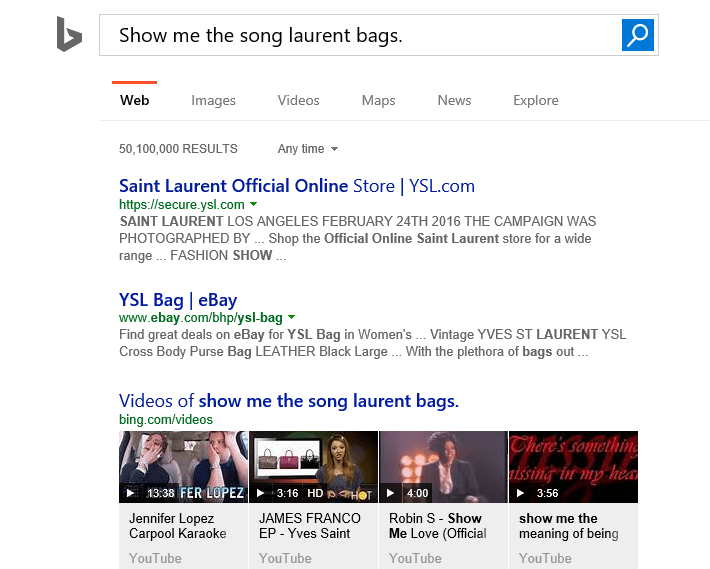Is Your Brand Prepared For Voice Search? 3 Steps to Get The Conversation Started
Whether you work in SEO or PPC, you’ve likely noticed a new trend emerging in your search reports: a rise in longer-tail searches and question-based search phrases. The likely culprit? Voice input.
Voice search is easier than text input; we all know this. We can speak something much more naturally than we can type it. Most of us are looking for a fast fix or a way to make multi-tasking more efficient, and conversational user interfaces fit that bill perfectly.
Whether we want to ask Alexa to clarify a recipe while cooking, ask Siri for directions while driving or run quick searches during the commercial breaks when second-screening, we’re all getting increasingly comfortable using voice search and digital personal assistants.
Take a look at the rapid adoption rates that Search Engine Land reported on back in December:

The vast majority of folks reported adopting conversational search just within the last several months, showing how dramatically it is growing.
Why does this matter?
There’s an obstacle that brands face when adjusting to voice input for search. The obstacle is that we will turn this easy input into a complicated problem because we haven’t adjusted for it.
Here are three simple steps you can take today to prepare.
1. Rethink how you’re showing up for branded searches
Do you follow the comedian John Oliver? I love how good he is at skewering companies or people who are doing things they shouldn’t. Recently, he did a report on the problem of mistaken identity in credit reporting with the three big credit reporting companies.
John Oliver’s investigation revealed that as many as 10 million people in the United States have major errors on their credit reports as a result of mistaken identity, but the major credit reporting companies (Equifax, Experian and TransUnion) have no system in place for fixing these errors which cause a lot of havoc in people’s lives.
Here’s what he did:

He suggested his viewers visit parody sites his team created at equifacks.com, experianne.com and tramsonion.com. Because, as he said, “It would clearly be a horrible thing if these actual companies were mistaken for these fake companies. But don’t worry – 95 percent of the time, that won’t happen. And apparently that’s good enough, right?”
While this is a hilarious parody, we do need to take into account variations in pronunciation when it comes to voice search, since the margin of error here can be quite vast.
I could search for these brand names and still come across the parody sites, like here:

As you can see, this is not ideal for the credit company’s brand.
I’m going to walk you through a true example, and this is your cautionary tale.
I did a voice search on Cortana on my desktop for Bobbi Brown makeup. I noticed that Cortana spelled “Bobbi Brown” differently from the brand name:

Here’s what the SERPs looked like:

Great job on the shopping ads here, and the organic results were on point, too. In this case, misspellings had been accounted for within the search strategy.
But what about brands that are not in English?
Let’s take Yves Saint Laurent as an example. I searched for “show me Yves Saint Laurent bags” using both Siri and Cortana:


Cortana did much better here than Siri did, but the variability in pronunciation means that we can’t count on voice search getting it right every time — at least not for a while.
Advertisers need to anticipate these issues and commit some time to resolving the voice search picture for their brands.
What can you do?
- Research misspellings that can result from common mispronunciations of brand name, product name or key search terms.
- Add them as a test to your keyword optimization strategy, though be careful to add in relevant negative keywords, as well.
2. Adjust for natural language
Natural language shows intent more strongly.
When you type a search, you use computer language — “Bahamas vacation deals,” for example. When you speak a search, you use your own language: “What are some Bahamas vacation deals for June?” or “How much does it cost to fly to the Bahamas?”
The advantage of this is the degree of specificity. That’s also where brands can stumble.
If your listing in the SERPs for one of these specific queries is a generic page, chances are you’ll lose the click. To boost your chances of winning, make sure you offer search results that can answer the query most closely.
For example, here are three of the ads that showed up for a conversational search for “What are some Bahamas vacation deals for June?” Which one would you have clicked on?

The third ad mentioning the “summer sale” has a very high level of relevancy, and it is the only one that factored in the specific timeline mentioned by the searcher. That’s the one I would have picked!
What can you do?
- Optimize your landing pages and ad copy to account for high-value natural language searches.
- Since broad match may not always account for natural language queries, consider adding these high-value natural language queries as keywords within your PPC campaigns.
- Select keywords based on the degree of intent the searches reveal. For example, I may not want to bid on “Who lives in the Bahamas?”
- Adjust bids based on degree of intent. For example, I would want to ensure I raised my bids for relevant queries such as “What are the best vacation packages for the Bahamas?”
3. Adapt for top of funnel
Of course, you’re showing up for branded searches or transactional searches directly asking for your product. But what about being helpful to your customers by answering their questions with information you have to share?
As you know, content marketing helps brands build loyalty. When it comes to conversational search, it also helps you show up for long-tail queries, which is another aspect of voice search that is becoming more critical.
Since voice search queries have been shown to frequently contain question words, marketers could benefit from informational creative that addresses top-of-funnel queries, as well.
While they may not immediately be transactional, this content could help build your brand’s goodwill and engagement levels.
For example:

What can you do?
- Research a list of FAQs relevant to your products, and try optimizing those pages for the natural language query version of the questions.
- Monitor additional KPIs, such as assisted conversions for PPC, as well as micro-conversions, such as form fills or content interaction.
In summary
Think of the last few searches you did using voice. How often are you using it? This is a great time to get a jump on voice search and voice inputs, as we all try to figure it out together as an industry.
The early adopter gets the advantage, so why not get the conversation started at your company?

Article H/T: Search Engine Land. Image: Alexander Supertramp / Shutterstock.com

